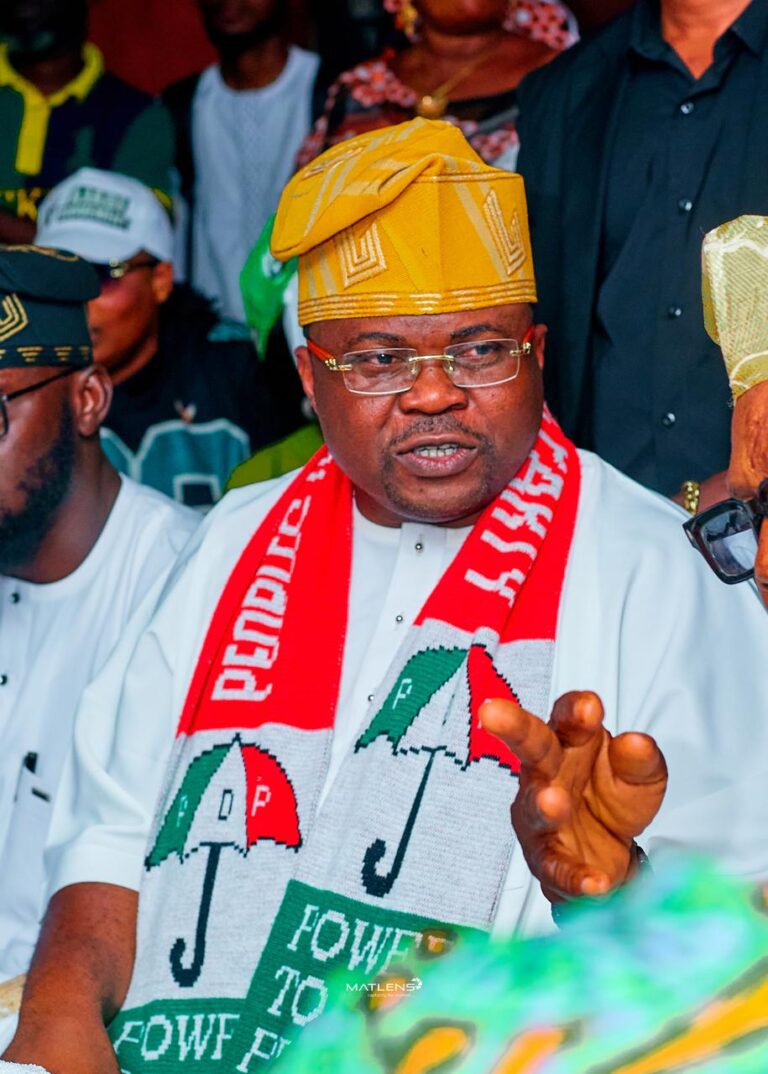society
EFCC boss to Nigerians: Fight against corruption should be collaborative

EFCC boss to Nigerians: Fight against corruption should be collaborative
The Chairman of the Economic and Financial Crimes Commission (EFCC), Ola Olukoyede, has expressed surprise at the attitude of Nigerians who complain of corruption but support corrupt leaders in various ways when they are prosecuted.
Speaking at the weekend in Abuja during a visit by officials of the Centre for Crisis Communication (CCC), led by Chris Olukolade, the EFCC boss pointed out the contradiction in public attitude, nothing that while Nigerians decry corruption, they often support and defend corrupt leaders when they are prosecuted.
“Everybody is crying that Nigerians are corrupt, that the system is corrupt; that corruption is killing us and destroying our system, but when we investigate high profile cases and arraign people in court, the same people will carry placards and be supporting corrupt leaders.
“It doesn’t show that we are serious about this fight, the fight is supposed to be a collaborative effort,” he said.
Olukoyede noted that the fight against corruption requires collaboration between the government and the citizens, adding that true progress requires collective commitment to integrity and accountability.
He submitted that corruption remains the biggest obstacle to national development.
“One of the major problems in Nigeria which when tackled, will make under-development a thing of the past, is corruption and financial crimes,” he said.
Olukoyede reiterated the EFCC’s commitment to combating financial crimes within the ambit of the law and called for greater public collaboration in the fight against corruption.
The anti-graft agency, he said, will work with the CCC and other like-minded groups to enhance strategic communication and public awareness about integrity and accountability.
news
GEN CHRISTOPHER GWABIN MUSA SUPPORT INITIATIVE COMMENDS STATE-FEDERAL COLLABORATION IN ZAMFARA

GEN CHRISTOPHER GWABIN MUSA SUPPORT INITIATIVE COMMENDS STATE-FEDERAL COLLABORATION IN ZAMFARA
The Gen Christopher Gwabin Musa Support Initiative (GCGMSI) has commended the Zamfara State Government for its decisive contribution to security operations through the donation of newly acquired armoured personnel carriers (APCs), surveillance drones, and other critical operational equipment to troops and security agencies in the state.
This commendation was contained in a statement signed by the Convener of the GCGMSI, Ibrahim Dahiru Danfulani, Sadaukin Garkuwan Keffi/Betara Biu, and made available to the press.
The equipment was formally commissioned on Wednesday, February 18, by the Grand Patron of the GCGMSI and Minister of Defence, General Christopher Gwabin Musa, OFR (rtd.), in a ceremony at the Government House, Gusau. The event was attended by senior military officers, heads of security agencies, and top officials of the Zamfara State Government.
The GCGMSI, in its statement, hailed the donation as a “transformative and timely intervention” that aligns perfectly with its core objective of advocating for and supporting tangible measures that enhance the operational capacity and welfare of Nigeria’s security forces. The Initiative praised Governor Dauda Lawal’s administration for moving beyond rhetoric to actionable, material support, describing the move as a “blueprint for state-level collaboration in national security.”
“The provision of these assets by the Zamfara State Government is a testament to visionary leadership and a profound commitment to the peace and stability of its people,” the GCGMSI statement read. “It represents the exact kind of synergistic partnership between state and federal authorities that the GCGMSI champions. This initiative will significantly close operational gaps, boost the confidence of our gallant troops, and send a strong message to criminal elements.”
Speaking at the commissioning, General Musa emphasized that sustained collaboration is indispensable in confronting the nation’s evolving security challenges. He specifically commended Governor Lawal for his proactive support.
“Governor Dauda Lawal has demonstrated exemplary leadership and an unwavering dedication to the security of Zamfara State,” the Defence Minister stated. “The provision of these armoured vehicles, surveillance drones, and other operational equipment will undoubtedly boost the morale and operational effectiveness of our troops and other security agencies on the ground. This is a commendable effort that should be emulated by others.”
The newly commissioned assets, which include multiple APCs and advanced surveillance drones, are expected to dramatically enhance the mobility, protection, intelligence-gathering, and rapid response capabilities of security forces, particularly in the state’s remote and difficult terrains where anti-banditry operations are ongoing.
In his remarks, Governor Lawal reiterated his administration’s steadfast commitment to being a reliable partner in the security architecture. He urged security agencies to deploy the new resources responsibly and effectively to safeguard lives and property.
The Federal Government, through the Ministry of Defence, reaffirmed its commitment to continuing and deepening such partnerships with state governments across the nation to strengthen coordination and resource allocation in the collective fight against insecurity.
The GCGMSI concluded its statement by urging other state governments to take a cue from Zamfara’s “bold and pragmatic” approach, affirming that such concrete support is vital for achieving lasting peace and security across Nigeria.
society
Governor Dauda Lawal Commissions 25 Armoured Personnel Carriers, Aerial Surveillance Drones to Combat Insecurity

Governor Dauda Lawal Commissions 25 Armoured Personnel Carriers, Aerial Surveillance Drones to Combat Insecurity
In a major boost to the fight against banditry and insecurity in Zamfara State and the North-West Zone, Zamfara State Governor, His Excellency, Dr Dauda Lawal, on Wednesday commissioned 25 new Armoured Personnel Carriers (APCs) and sets of surveillance drones for the military and other security agencies operating in the state.
The event, which took place in Gusau, was part of the state government’s ongoing effort to provide structured logistical support to frontline security forces and combat insurgency, banditry, and protect lives and properties. Speaking at the commissioning and handover, Governor Lawal emphasised that the new assets are intended to enhance troop protection during high-risk deployments and improve rapid response capabilities in remote communities, ensuring tactical battle and overhead surveillance for victory.
“We have provided over 600 specialised motorcycles, 150 Hilux vehicles, and 20 Buffalo vehicles to our security forces. These 25 highly sophisticated APCs being commissioned today are therefore part of a broader reform to improve response to security threats. The APC’s significantly improves troop protection during deployments into high-risk areas. They reduce vulnerability during patrols, support convoy security along major routes, and strengthen rapid response capability when distress calls arise from remote communities.” the Governor stated.
Governor Lawal explained that the security challenges of recent years had disrupted farming, limited trade, and undermined public confidence across the state. He noted that his administration’s “Rescue Mission” agenda has focused on moving from fragmented responses to structured reforms, including the establishment of a Zamfara State Security Trust Fund and the operationalisation of Community Protection Guards to improve grassroots intelligence.
The Governor specifically highlighted the importance of integrating modern technology into security operations. He noted that the newly acquired drones would expand aerial surveillance, improve situational awareness, and support better coordination between command centres and troops in the field.
“Real-time information strengthens decision-making and reduces operational blind spots,” he added.
Governor Lawal however acknowledged the critical role of the Federal Government under President Bola Ahmed Tinubu, noting that recent federal budgets have allocated over three trillion naira to defence, a commitment he said strengthens subnational stabilisation efforts.
He urged the military commanders and personnel receiving the equipment to ensure disciplined maintenance and intelligence-guided deployment. “Enhancing your safety enhances the safety of our communities,” he told the troops.
Governor Lawal also told the people of Zamfara that; his administration remains resolute in restoring enduring security and peace across every Local Government Area. “We will sustain preventive measures, strengthen patrol architecture in rural corridors, deepen inter-state intelligence collaboration across the North-West, and maintain fiscal prudence in security expenditure. Stabilisation will continue through structured planning, lawful enforcement, and institutional reform.”
The Governor also linked the security investment to economic recovery, stressing that stability in rural areas is essential for agricultural productivity, market activity, and food security.
The event was attended by the Honourable Minister of Defence, General Christopher Musa (Rtd.), who formally commissioned the assets for operational service. Governor Lawal reaffirmed his administration’s resolve to sustain preventive measures and inter-state security collaboration until lasting peace is restored across all Local Government Areas in Zamfara.
society
Ramadan, Lent: Ajadi Urges Religious Harmony, Prayers for Nigeria

Ramadan, Lent: Ajadi Urges Religious Harmony, Prayers for Nigeria
A leading governorship aspirant of the Peoples Democratic Party (PDP) in Oyo State, Ambassador Olufemi Ajadi Oguntoyinbo, has extended warm felicitations to Muslims and Christians on the simultaneous commencement of Ramadan and Lent.
Ramadan, the Islamic holy month marked by 30 days of fasting and spiritual devotion, and Lent, the 40-day Christian season of fasting and reflection, began on the same day — a development Ajadi described as symbolic and spiritually significant.
In a statement personally signed by him on Wednesday, Ajadi congratulated adherents of both faiths and called for sustained religious tolerance, unity, and peaceful coexistence across the state and the country at large.
He described the coincidence in the commencement dates as a reminder of shared values between Islam and Christianity.
“The simultaneous commencement of Ramadan and Lent is a divine reminder that we all worship the same Almighty God. It is a call for unity, love, and mutual understanding among us,” he stated.
Ajadi urged Muslims and Christians to use the sacred periods of fasting and spiritual purification to pray fervently for Nigeria, especially in view of the nation’s economic and security challenges.
“Our country is facing significant hardship. The economic difficulties and prevailing insecurity require sincere prayers. This season of spiritual purification offers us a unique opportunity to seek God’s intervention for our nation,” he said.
He further emphasized that both Islam and Christianity preach peace, tolerance, and respect for constituted authority, urging citizens to embody these teachings in their daily lives.
“Let us live peacefully, tolerate one another, and continue to pray for those in leadership. Our faiths teach us to respect and uphold our leaders in prayer,” Ajadi added.
The PDP chieftain concluded by wishing Muslims a spiritually fulfilling Ramadan and Christians a reflective and enriching Lenten season, encouraging both communities to embrace love, sacrifice, and harmonious living throughout the sacred periods.
-

 celebrity radar - gossips6 months ago
celebrity radar - gossips6 months agoWhy Babangida’s Hilltop Home Became Nigeria’s Political “Mecca”
-

 society6 months ago
society6 months agoPower is a Loan, Not a Possession: The Sacred Duty of Planting People
-

 society5 months ago
society5 months agoReligion: Africa’s Oldest Weapon of Enslavement and the Forgotten Truth
-

 news6 months ago
news6 months agoTHE APPOINTMENT OF WASIU AYINDE BY THE FEDERAL GOVERNMENT AS AN AMBASSADOR SOUNDS EMBARRASSING








